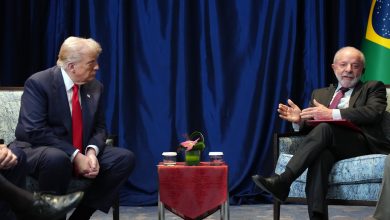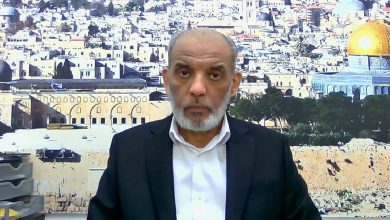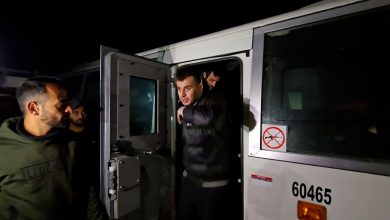Brussels – A prominent member of the European Parliament has asserted that lasting peace in the Israeli-Palestinian conflict hinges on holding Israel accountable for its actions in the Gaza Strip. Irish MEP Barry Andrews, speaking in an interview with Anadolu Agency, underscored the necessity for justice and reconciliation, warning against prioritizing security arrangements over genuine accountability for alleged war crimes. His remarks coincided with the recent European Union summit in Brussels, where leaders discussed the future of EU-Israel relations following the cessation of hostilities in Gaza.
Andrews drew parallels with the Northern Ireland peace process, stating, “The experience of my country in the Irish peace process shows that peace cannot be achieved without justice and accountability. Reconciliation between Israelis and Palestinians needs sustained international support, but it will not succeed if the world ignores the crimes that have been committed.” He emphasized that transitional justice mechanisms are crucial to ensuring accountability for events in Gaza, arguing that impunity for Israel would undermine any prospect of a durable peace.
The MEP’s comments come in the wake of a devastating two-year conflict that, according to Palestinian sources, resulted in the deaths of over 68,000 Palestinians and injuries to approximately 170,000. The conflict also caused widespread destruction of civilian infrastructure in Gaza, with estimates suggesting that 90% of the region’s infrastructure was damaged or destroyed. A ceasefire agreement, brokered by the United States and implemented on October 10th, brought an end to the fighting, but the underlying issues remain unresolved. The agreement also included provisions for prisoner exchanges between Israel and Hamas.
Andrews was critical of recent discussions within the European Parliament that focused primarily on the disarmament of Hamas. He described such expectations as “unrealistic,” arguing that they oversimplified the complexities of the conflict. “It is wrong to reduce the peace process to the issue of disarming Hamas only,” he stated. “A lasting peace cannot be achieved without genuine reconciliation, and there can be no reconciliation without accountability and justice for the Palestinians who have suffered from war and occupation.” He insisted that any future political arrangements must be based on justice and accountability, not merely on temporary security measures.
Furthermore, Andrews argued that sanctions against Israel are not merely a political tool but a legal and moral obligation under international law. He reminded that the International Court of Justice has ruled the Israeli occupation of the West Bank illegal, which he believes compels the EU to take concrete action against Tel Aviv, such as restricting trade relations and halting arms exports. “Sanctions are not just a political tool; they are a legal and moral obligation imposed by international law,” Andrews stated.
For more information about Palestine, check our dedicated section.
Beyond accountability, Andrews also addressed the urgent need for humanitarian assistance to Gaza. He called for the immediate and unfettered access of aid to the region, noting that Israel continues to impose stringent restrictions on the entry of aid and hinder the work of international humanitarian organizations. He pointed out that the delays and obstacles placed in the path of humanitarian workers exacerbate the suffering of the Gazan population, who are already grappling with the aftermath of the conflict.
Reconstruction of Gaza is another critical priority, according to Andrews. He advocated for an international conference to be convened as soon as possible to address the massive rebuilding effort required. While acknowledging the vital role that Arab states would play in financing and implementing reconstruction projects, he stressed that the European Union must take the lead in coordinating the reconstruction plan to ensure sustainability and transparency in resource management. He emphasized the importance of establishing robust oversight mechanisms to prevent corruption and ensure that resources are used effectively to rebuild Gaza’s shattered infrastructure and provide essential services to its residents.
The MEP’s statements highlight a growing divide within the European Union regarding its approach to the Israeli-Palestinian conflict. While some member states prioritize maintaining close ties with Israel, others are increasingly vocal in their criticism of Israel’s policies and its treatment of Palestinians. Andrews’ call for accountability and potential sanctions represents a more assertive stance, reflecting a growing sentiment that the EU must do more to uphold international law and promote a just and lasting peace. The challenge for the EU will be to find a way to balance its various interests and values in a way that contributes constructively to resolving the conflict. The recent EU summit revealed the complexity of this challenge, as member states struggled to reach a consensus on a unified approach to the region. The debate over sanctions and other measures against Israel is likely to continue, reflecting the deep divisions within the EU on this sensitive issue. The long-term impact of these divisions on EU foreign policy remains to be seen. The comments from Andrews serve as a barometer of the rising concerns, within European political circles, about the need for a more robust and principled approach to the Israeli-Palestinian conflict, one that prioritizes justice, accountability, and the long-term prospects for a sustainable peace.



